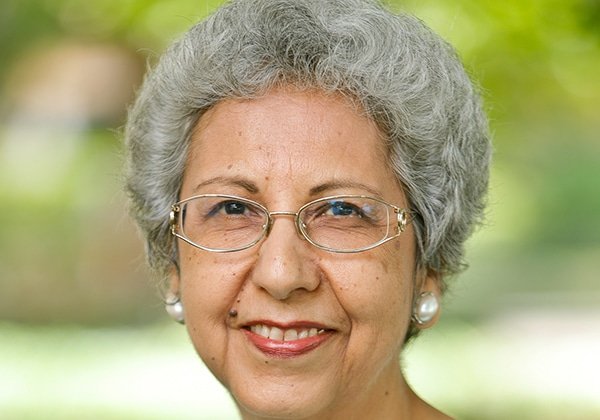Biography
Armene Modi, Founder of Ashta No Kai, a non-profit that aims to empower women and girls in rural India, holds an MA in TESOL from Columbia University, and an honorary Doctorate in Education. Armene received Rotary’s 2016 Literacy Hero Award, and the “Sushila Nayar Award for Outstanding Contribution to Women’s Literacy in Rural Areas.”
Transforming Lives: From Literacy for Adult Women to Adolescent Girls’ Education in Rural India
While literacy is a powerful tool to transform lives, the journey from reading to empowerment is challenging. The presenter will share initiatives and challenges in promoting literacy for adult women whilst simultaneously addressing adolescent girls’ education in rural India, which have contributed to improving adolescent girls’ educational outcomes, arrest of child marriages, and the personal empowerment of thousands of rural women.
The presentation will focus on the initiatives and challenges of Ashta No Kai (ANK), a non-profit founded by the presenter to promote literacy and empowerment for rural women and girls in ten villages in Shirur County of Pune District, Maharashtra, India. First, the presentation will focus on the challenges faced in initially attempting to empower rural women through a singular focus on literacy, and the lessons ANK learned as a result. Second, the presentation will describe ANK’s revised approach to literacy coupled with the empowerment of women and girls, and how this helped to make a difference in the lives of thousands of rural women and girls by enabling them to use their literacy and education to become change agents in their villages. Specifically, the presentation will describe the various interventions ANK initiated at tipping points in hundreds of adolescent girls’ lives to leverage gains in literacy, including a Bicycle Bank, scholarships, and a life skills education program. These efforts have resulted in rural girls pursuing careers that their mothers and grandmothers would never have dreamed of; becoming doctors, dentists, pharmacists, engineers, etc. Moreover, besides arresting the high number of adolescent girl drop outs, the average age of marriage for girls is now 19 in ANK villages, a far cry from the child brides who were earlier married off at 13. In addition, rural women in ANK villages have become financially independent and empowered enough to find solutions to their own problems of poverty and lack of agency. The presentation will conclude with key lessons from ANK’s holistic approach which couples literacy in rural contexts for adult women with empowering education for adolescent girls in villages to enable the dismantling of ideologies that prevent rural women and girls from thriving.

